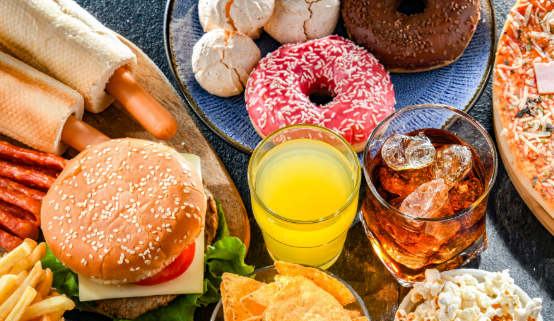ouble Your Weight Loss: Why Minimally Processed Foods Help More Than Packaged “Healthy” Options
A new study from University College London has confirmed something many of us suspected: what you eat matters just as much as how much you eat — and perhaps even more.
Researchers compared two groups of people following different diets over eight weeks. Both plans met official healthy-eating guidelines. The only real difference? One group ate mostly minimally processed foods — think overnight oats, fresh fruit, chicken salad — while the other followed a diet made up of ultra-processed foods, like shop-bought sandwiches, packaged bars, and ready meals.
The results were striking.
What the Study Found
- People on the minimally processed food (MPF) diet lost twice as much weight as those on the ultra-processed (UPF) diet — despite eating as much or as little as they wanted.
- MPF participants lost an average of 2% of their body weight in just 8 weeks, compared to 1% for the UPF group.
- They also consumed around 170 fewer calories per day, naturally — no calorie counting required.
- The MPF diet resulted in greater fat loss, with no reduction in muscle mass.
- Cravings and feelings of food addiction were significantly reduced.
If these trends continued over a year, MPF followers could lose up to 13% of their body weight (men) or 9% (women), compared to just 4–5% for those on a UPF diet.
What This Means for You
This study reinforces what we see time and time again at Temple Clinic: ultra-processed foods can sabotage your best intentions, even if the packaging looks healthy or the nutritional stats seem fine.
By contrast, eating real, simple food — food that looks like it did when it came out of the ground, off the tree, or from the butcher — naturally reduces calorie intake without increasing hunger or cravings.
Simple Shifts You Can Make
- Cook from scratch whenever possible — even basic meals count.
- Swap processed snack bars for fruit, nuts, or Greek yogurt.
- Choose whole grains like brown rice, oats, or quinoa over “instant” or pre-flavoured options.
- Limit supermarket ready meals and pre-made sauces, even if they’re labelled “low fat” or “high protein.”
- Make vegetables, legumes, lean protein, and whole carbs the centre of your meals.
About the Study
This blog is based on a major 2025 clinical trial by University College London, published in Nature Medicine. It compared two healthy diets — one based on minimally processed foods, the other on ultra-processed ones. Even though both met official nutrition guidelines, those eating real, whole foods lost more weight, had better appetite control, and saw greater fat loss.
For more detail, see the official study https://www.nature.com/articles/s41591-025-03842-0











